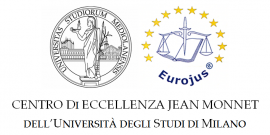Lo Stato di diritto alla prova dell’allargamento dell’UE (o l’allargamento della UE alla prova dello Stato di diritto)
L’articolo affronta il tema dello Stato di diritto in relazione al processo di allargamento dell’Unione europea: quello già realizzatosi rivolto ai paesi dell’Europa centro orientale, con il quinto allargamento, sia quello che in prospettiva riguarderà i Balcani Occidentali e alcuni paesi del partenariato orientale, in primis Ucraina, ma anche Moldova e Georgia. A tal fine la ricerca intende verificare se rispetto alla tesi che lega le difficoltà attuali del processo di allargamento, soprattutto nei Balcani occidentali, alla frammentazione o addirittura disintegrazione dell’Unione europea, possa aver luogo una lettura differente di tale processo. In particolare sarà oggetto di indagine se la pervasività che il rule of law ha ormai acquisito nel processo di integrazione europea richieda un mutamento di prospettiva tale da condurre ad un ripensamento anche del modo di intendere i criteri di Copenaghen. L’ipotesi al centro dell’indagine postula che la natura sostanziale ormai assunta del principio dello Stato di diritto nel diritto dell’Unione europea, grazie soprattutto alla giurisprudenza della Corte di giustizia sugli art. 2 TUE e 19 TUE, induca a considerarlo ormai un limite alla capacità di assorbimento dell’ Unione trasversale ai criteri di Copenaghen.
Per leggere l’articolo completo, clicca Qui
The article aims to investigate the role played by the principle of the rule of law in relation to the enlargement process of the European Union: the one that has already taken place with regard to the countries of Central and Eastern Europe, with the fifth enlargement, and the one that will affect the Western Balkans and some countries of the Eastern Partnership in the future, primarily Ukraine, but also Moldova and Georgia. To this end, the research intends to examine whether a different reading of the enlargement process, especially in the Western Balkans, could take place with respect to the thesis linking the current difficulties of the enlargement process to the fragmentation or even disintegration of the European Union. In particular, it will be investigated whether the pervasiveness that the rule of law has now acquired in the process of European integration calls for a change of perspective that would also lead to a rethinking of the Copenhagen criteria. The hypothesis at the heart of the investigation postulates that the now assumed substantive nature of the principle of the rule of law in European Union law, thanks above all to the case law of the Court of Justice on Articles 2 TEU and 19 TEU, leads us to consider it as a limit to the absorption capacity of the Union transversal to the Copenhagen criteria
To read the full article, click Here


